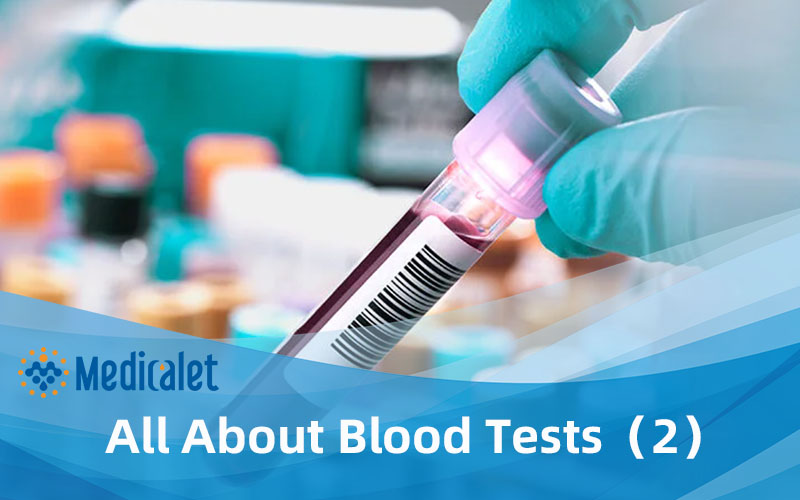
5. Thyroid panel
A thyroid panel, or thyroid function test, checks how well your thyroid is producing and reacting to certain hormones, such as:
Triiodothyronine (T3). Along with T4, this regulates your heart rate and body temperature.
Thyroxine (T4). Along with T3, this regulates your metabolism and how you grow.
Thyroid-stimulating hormone (TSH). This helps regulate the levels of hormones your thyroid releases.
Your thyroid is a tiny gland in your neck. It helps regulate bodily functions like your mood, energy level, and overall metabolism.
Here are normal results:
T3: 80–180 nanograms per deciliter of blood (ng/dL)
T4: 0.8–1.8 ng/dL in adults.
TSH: 0.5–4 milli-international units per liter of blood (mIU/L)
Abnormal levels of these hormones can indicate numerous conditions, such as:
low protein levels
thyroid growth disorders
abnormal levels of testosterone or estrogen
6. Cardiac biomarkers
Enzymes are proteins that help your body accomplish certain chemical processes, such as breaking down food and clotting blood. They’re used throughout your body for many vital functions.
Abnormal enzyme levels can indicate many conditions.
Common enzymes tested include:
Creatine kinase (CK). This is an enzyme primarily located in the brain, heart, and skeletal muscle. When muscle damage happens, CK seeps into the blood in growing amounts.
Creatine kinase-MB (CK-MB). These enzymes are found in your heart. They often increase in your blood after a heart attack or other heart injury.
Troponin. This is a heart enzyme that can leak into your blood and results from heart injury.
Here are the normal ranges for the enzyme listed above:
CK: 30–200 U/L
CK-MB: 0–12 IU/L
troponin: <1 ng/mL
7. Sexually transmitted infection tests
Many sexually transmitted infections (STIs) can be diagnosed using a blood sample. These tests are often combined with urine samples or swabs of infected tissue for more accurate diagnoses.
The following STIs can be diagnosed with blood tests:
chlamydia
gonorrhea
herpes
HIV
syphilis
8. Coagulation panel
Coagulation tests measure how well your blood clots and how long it takes for your blood to clot. Examples include the prothrombin time (PT) test and fibrinogen activity test.
Coagulation test results vary based on your health and any underlying conditions that may affect clotting.
Results from this test can be used to diagnose:
leukemia
excessive bleeding (hemophilia)
thrombosis
liver conditions
vitamin K deficiency
9. DHEA-sulfate serum test
In men, DHEA helps develop traits like body hair growth, so low levels are considered abnormal. In women, high levels can cause typically male traits, like excess body hair, to develop, so low levels are normal.
Low levels may be caused by:
Addison’s disease
adrenal dysfunction
hypopituitarism
High levels in men or women can result from:
congenital adrenal hyperplasia
benign or malignant tumor on the adrenal gland
polycystic ovary syndrome (PCOS)
ovarian tumor
10. C-reactive protein test
C-reactive protein (CRP) is made by your liver when tissues in your body are inflamed. High CRP levels indicate inflammation from a variety of causes, including:
bacterial or viral infection
autoimmune diseases, such Lupus or rheumatoid arthritis
inflammation related to diabetes
inflammation related to physical trauma or from habits like smoking
cancer
The higherTrusted Source the level, the higher the risk of heart disease:
<0.3 mg/dL: normal
0.3 to 1.0 mg/dL: minor elevation can be associated with a person’s sex, body mass index (BMI), or with conditions like depression or insomnia
1.0 to 10.0 mg/dL: moderate elevation usually caused by systemic inflammation, such as from an autoimmune disease, bronchitis, heart attack, or cancer
>10.0 mg/dL: marked elevation typically caused by a serious bacterial or viral infection, major trauma, or systemic vasculitis
>50.0 mg/dL: severe elevation usually caused by an acute bacterial infection
If you want to request a routine blood test, the most common ones to consider are:
complete blood count (CBC)
basic metabolic panel
thyroid panel
nutrient tests for levels of vital nutrients, such as iron or B vitamins
Some other tests you may want include:
enzyme markers if you’re at risk of cancer or other conditions like cirrhosis, stroke, or celiac disease
sexually transmitted infection (STI) tests if you recently had sex without a barrier method or had sex with a new partner
How often should I get routine blood work?
How often you should get a physical exam may depend on your age, according to guidelines from a variety of clinical organizations:
ages 18 to 39: at least every 5 years
ages 40 to 49: every 2 to 3 years
ages 50 and older: every 1 to 2 years
In general, recommendations callTrusted Source for at minimum a lipid test starting at age 20 and every 5 years after that for people with a low risk of heart disease.
For people at a higher risk of heart disease, more frequent lipid testing may be necessary.
In addition, you should get a glucose blood test if your blood pressure is continuously above 135/80. People over age 50 should get a fecal occult blood test to screen for colorectal cancer annually.
